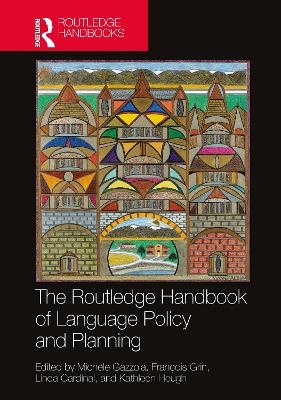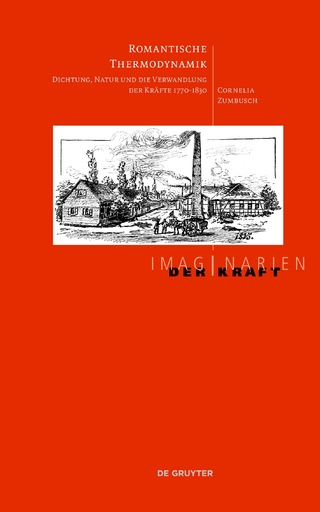
The Routledge Handbook of Language Policy and Planning
Routledge (Verlag)
978-1-138-32819-8 (ISBN)
The Routledge Handbook of Language Policy and Planning is a comprehensive and authoritative survey, including original contributions from leading senior scholars and rising stars to provide a basis for future research in language policy and planning in international, national, regional, and local contexts.
The Handbook approaches language policy as public policy that can be studied through the policy cycle framework. It offers a systematic and research-informed view of actual processes and methods of design, implementation, and evaluation.
With a substantial introduction, 38 chapters and an extensive bibliography, this Handbook is an indispensable resource for all decision makers, students, and researchers of language policy and planning within linguistics and cognate disciplines such as public policy, economics, political science, sociology, and education.
Michele Gazzola is Lecturer in Public Policy and Administration at Ulster University, Belfast, United Kingdom, and co-director of the Centre for Public Administration at the same university. His research focuses on the analysis of language policy, and on the economic and social aspects of multilingualism. He is editor of Language Problems & Language Planning. François Grin is a Full Professor of Economics at the Faculty of Translation and Interpreting at the University of Geneva, Switzerland. He has published widely on interdisciplinary approaches to language policy design and evaluation and has steered major national and international research projects in this area. He is Editor-in-Chief of Language Problems & Language Planning. Linda Cardinal is Professor and Associate Vice-President of Research at the Université de l’Ontario français, Toronto, Canada. She is also Emeritus Professor of Political Studies at the University of Ottawa. Her research interests include language regimes and policies, Canadian language politics, citizenship debates, and minorities. Kathleen Heugh is Professor of Language Education and Multilingualism, UniSA Education Futures at the University of South Australia. She is a socio-applied linguist specialising in language policy and planning in Africa, Asia, and Australia. Her research includes system-wide and multicountry studies of multilingual education and fieldwork in remote and post-conflict contexts among displaced and marginalised communities.
List of Contributors
Language policy and planning: from theory to practice (Michele Gazzola, François Grin, Linda Cardinal and Kathleen Heugh)
PART I – FOUNDATIONS OF LANGUAGE POLICY AND PLANNING (LPP)
The historical development of language policy and planning (Leigh Oakes)
Language policy and planning: terms of engagement (John Edwards)
Language-competition models (Torsten Templin and Bengt-Arne Wickström)
PART II – THE LANGUAGE POLICY CYCLE
Stage 1 – The emergence of language-related issues
Language policy and planning and the role of the state (Rémi Léger)
Language, belonging, and citizenship (Peter A. Kraus)
Language policy, planning and mobilisation in post-colonial civil societies (Kathleen Heugh)
Language and territory (Virginie Mamadouh)
Languages, the labour market, and trade (Gilles Grenier and Weiguo Zhang)
The economics of language policy and planning (Bengt-Arne Wickström and Michele Gazzola)
More than one language: cognitive perspectives and implications for language policy (Mirta Vernice and Antonella Sorace)
Stage 2 – The politics of language and agenda setting
Power and the politics of language (Selma K. Sonntag)
Language policy and discourse in the public sphere: the discursive construction of language and multilingualism as policy objects (Jaffer Sheyholislami and Rachelle Vessey)
Inter-group relations and attitudes: conceptualization, measurement, and relevance for language policy and planning (Guillaume Fürst)
Stage 3 – Policy formulation and adoption
Language policy design and programme theory (François Grin)
Language policy instruments (Linda Cardinal)
Costs and benefits of language policy: how to measure them (François Vaillancourt)
Governance, complexity, and multi-level language policy and planning (Huw Lewis and Elin Royles)
Language rights and protection of linguistic minorities: international legal instruments, their development and implementation (Roberta Medda-Windischer and Sergiu Constantin)
Stage 4 – Implementation and monitoring
Principles for language policy implementation (Helaina Gaspard)
Language policy implementation from an interactive governance perspective (Sebastian Godenhjelm)
Indicators in language policy and planning (Michele Gazzola and Gabriele Iannàccaro)
Stage 5 – Evaluation
Quantitative methods in language policy and planning: statistical measurement and identification of causal patterns (Antonio di Paolo)
Qualitative methods in language policy and planning: ethnographic monitoring (Teresa L. McCarty and Kyle Halle-Erby)
PART III – CONTEXTS OF LANGUAGE POLICY AND PLANNING
Official multilingualism (Nenad Stojanović)
Minority language protection and promotion (Brian Ó Curnáin and Conchúr Ó Giollagáin)
Reclaiming indigenous languages (Carlos Sánchez Avendaño)
International and supranational organisations (Lisa J. McEntee-Atalianis)
Multilingual cities (Ingrid Gogolin and Sarah McMonagle)
Language education policies: the role of the Common European Framework of Reference for Languages (Cinzia Colaiuda)
Language policy, literacy, and multilingualism (Joseph Lo Bianco)
Language policy in higher education (Maria Teresa Zanola)
Public services and translation policy (Reine Meylaerts)
Language policy and regulation in the old and new media (Tarlach McGonagle and Tom Moring)
Language policy and linguistic landscape (Stefaan van der Jeught)
Sign languages and language policy (Timothy Reagan)
Planned languages (Sabine Fiedler)
Transnational agencies and national language policy and planning in multilingual Africa (H. Ekkehard Wolff)
Language policies and integration in the labour market and society in Europe (Katalin Buzási)
Index
| Erscheinungsdatum | 30.09.2023 |
|---|---|
| Reihe/Serie | Routledge Handbooks in Applied Linguistics |
| Zusatzinfo | 25 Tables, black and white; 26 Line drawings, black and white; 26 Illustrations, black and white |
| Verlagsort | London |
| Sprache | englisch |
| Maße | 174 x 246 mm |
| Gewicht | 2120 g |
| Themenwelt | Geisteswissenschaften ► Sprach- / Literaturwissenschaft ► Anglistik / Amerikanistik |
| Geisteswissenschaften ► Sprach- / Literaturwissenschaft ► Literaturwissenschaft | |
| Geisteswissenschaften ► Sprach- / Literaturwissenschaft ► Sprachwissenschaft | |
| Recht / Steuern ► Allgemeines / Lexika | |
| Recht / Steuern ► EU / Internationales Recht | |
| ISBN-10 | 1-138-32819-7 / 1138328197 |
| ISBN-13 | 978-1-138-32819-8 / 9781138328198 |
| Zustand | Neuware |
| Haben Sie eine Frage zum Produkt? |
aus dem Bereich


